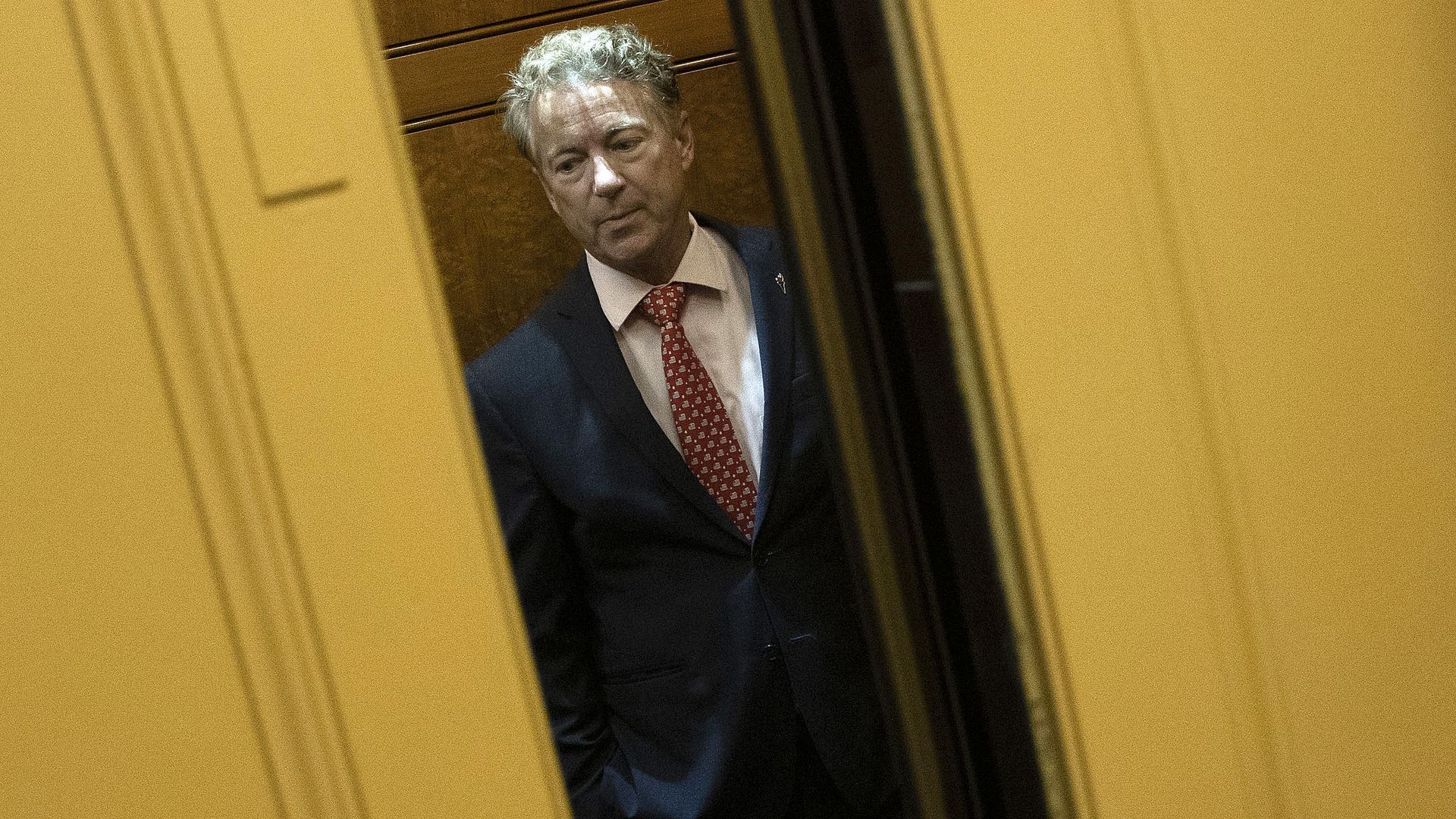The gaping holes in U.S. coronavirus testing strategy
Add Axios as your preferred source to
see more of our stories on Google.

Sen. Rand Paul. Photo: Win McNamee/Getty Images
The Trump administration is urging commercial labs to prioritize testing inpatients for the novel coronavirus, Vice President Mike Pence said Sunday, a reflection of how we're prioritizing America's woefully inadequate supply of diagnostic tests.
Why it matters: A high-profile example of the pitfalls of this strategy — which essentially means that only the sickest patients get tested — is Sen. Rand Paul's positive diagnosis. Paul is asymptomatic, but recently was in close contact with other senators, leading them to self-quarantine.
- That's how this is supposed to work; it cuts off the virus's line of transmission by keeping everyone who has been exposed quarantined at home. But it's impossible to do this across the population when we don't know who is infected.
- Our next-best option is for everyone to stay home and assume that they have the virus. But plenty of people have been ignoring social distancing guidance.
The big picture: As researchers learn more about the virus, it's becoming more apparent that asymptomatic carriers are likely important to its spread.
The latest: Our testing issues are no longer about a lack of labs making them. The latest problem is that even as our testing capability ramps up, we face shortages of the supplies used to make and conduct the tests.
- There are also concerns that people seeking tests who aren't severely ill will waste resources beyond the tests themselves, like personal protective equipment, and expose non-infected people.
What they're saying: "We are in a new phase of this fight. Only one thing matters now: treatment of the gravely ill," tweeted Mark Levin, chair of New York City Council health committee.
Go deeper ... Report: Data suggests 33% of coronavirus cases in China were asymptomatic
